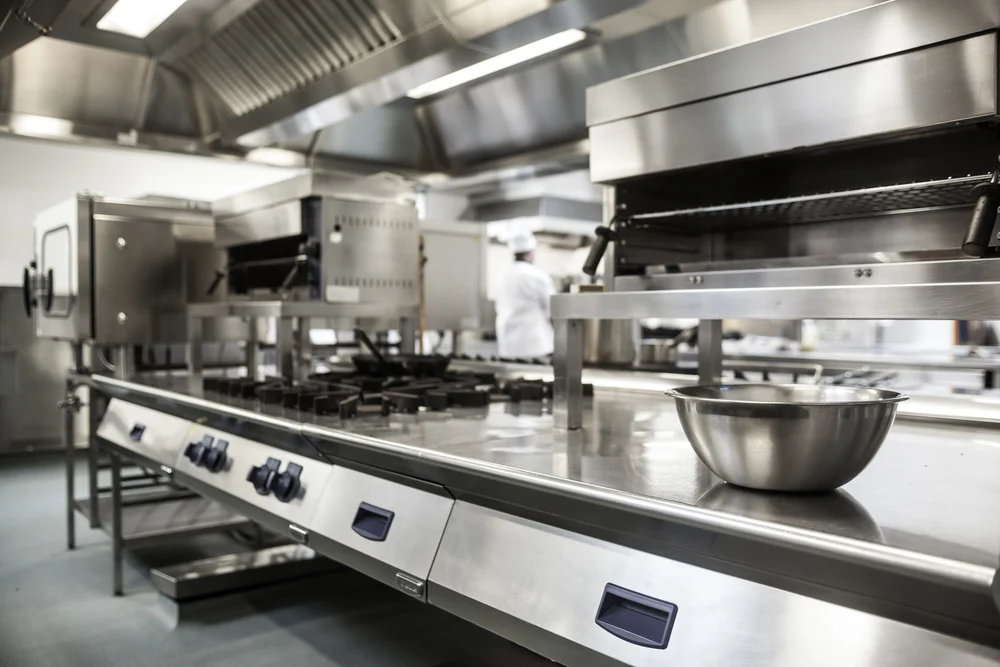In the bustling world of culinary arts and food service, a commissary kitchen serves as a cornerstone for many businesses, from fledgling food trucks to established catering companies. These shared or private commercial spaces are fully equipped with the necessary tools, appliances, and environments to prepare and store food safely and efficiently. This article delves into the concept of What is a Commissary Kitchen?, their benefits, and their role in the food industry.
Read Also: MyHomeworkHelp Reviews: Navigating the Academic Assistance Landscape
The Essence of Commissary Kitchens
A commissary kitchen, also known as a shared-use kitchen, is a commercial-grade facility designed for food entrepreneurs who need a legal and fully-equipped space for food preparation. Unlike home kitchens, commissary kitchens adhere to strict health codes and regulatory standards, ensuring that all food produced within their premises is safe for consumption.
These kitchens often come equipped with high-grade equipment that might be too expensive or large for individual businesses to afford or house, such as commercial ovens, large mixers, and walk-in refrigerators. This makes them an ideal solution for small businesses that require a professional kitchen to produce food on a larger scale than what a home kitchen could accommodate.
Read Also: Learning Home Repair Skills: A Student’s Guide
Benefits of Using a Commissary Kitchen
Regulatory Compliance
One of the primary benefits of using a commissary kitchen is compliance with food safety regulations. These kitchens are designed to meet local health department standards, making it easier for food businesses to obtain the necessary licenses and permits.
Cost-Effectiveness
Renting space in a commissary kitchen can be more cost-effective than owning or leasing a private commercial kitchen, especially for businesses that don’t require a kitchen full-time. This shared cost model allows for lower operating expenses, which is particularly beneficial for startups and small businesses.
Community and Networking
Commissary kitchens often foster a sense of community among different users. This environment can lead to networking opportunities, partnerships, and collaborations, providing a valuable support system for new and growing businesses.
Flexibility
Many commissary kitchens offer flexible rental agreements, ranging from hourly to monthly leases. This flexibility allows businesses to scale up or down based on their needs without the commitment or expense of a long-term lease.
Who Uses Commissary Kitchens?
Commissary kitchens cater to a wide range of food businesses, including:
- Food trucks and mobile food vendors
- Catering companies
- Meal prep and delivery services
- Small food product manufacturers
- Bakers and pastry chefs
- Pop-up restaurant concepts
Conclusion
what is a commissary kitchen play a pivotal role in the food industry by providing a viable, cost-effective solution for food businesses to operate legally and efficiently. They offer the necessary infrastructure, equipment, and community support for businesses at various stages of growth. By leveraging the benefits of a commissary kitchen, food entrepreneurs can focus on what they do best: creating and serving delicious food.
FAQs
What is the difference between a commissary kitchen and a ghost kitchen?
A commissary kitchen is a shared or private space that multiple food businesses can use for preparation and storage. In contrast, a ghost kitchen is a facility used exclusively for preparing delivery-only meals, often for multiple restaurant brands or virtual kitchens.
Can I start a food business from home instead of using a commissary kitchen?
Some regions allow home-based food businesses under cottage food laws, but these often come with significant restrictions on the types of food you can sell and where you can sell them. Commissary kitchens provide a professional environment that meets health standards, allowing for a wider range of food businesses.
How do I find a commissary kitchen near me?
You can search online for local commissary kitchens, shared-use kitchens, or culinary incubators. Food industry networks, local restaurant associations, and culinary schools can also be valuable resources for finding available kitchen space.
Are commissary kitchens expensive?
The cost of using a commissary kitchen can vary widely based on location, amenities, and the amount of time you need the space. Many find it more affordable than equipping and maintaining a private commercial kitchen, especially when considering the added benefits of flexibility and community support.
